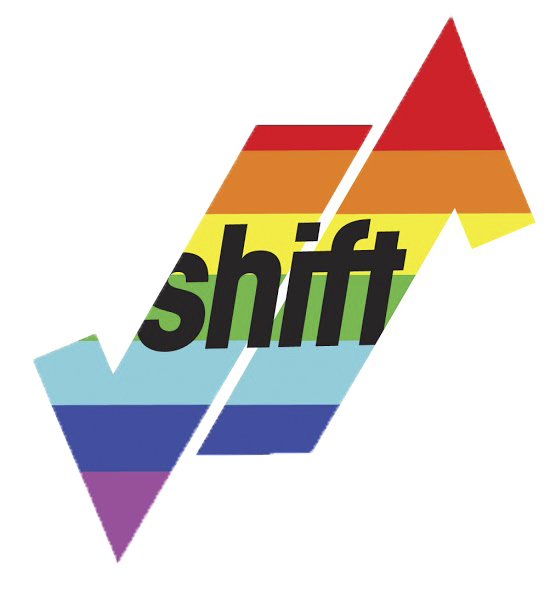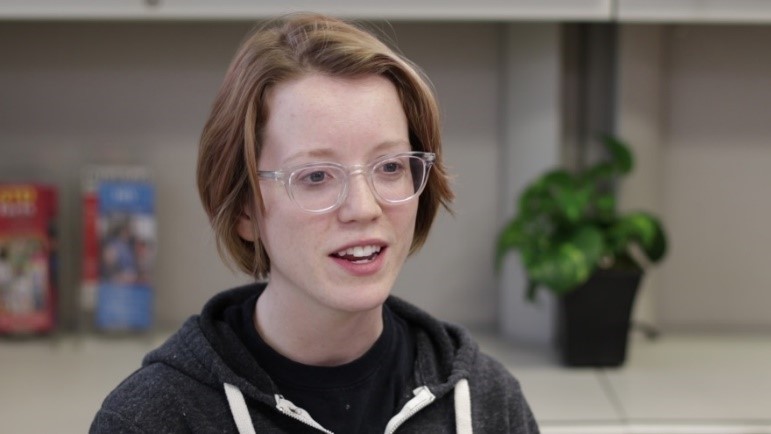Commercial Tobacco Use
- Commercial Tobacco Use Home
- Data and Reports
- Get Help Quitting
- Prevention and Treatment
- Tobacco and Your Health
Learn More
- Behavioral Health and Commercial Tobacco
- E-cigarettes and Vaping
- Flavored Commercial Tobacco
- Menthol Commercial Tobacco
- Nicotine and Nicotine Dependence
- Nicotine Pouches and Other Emerging Products
- Promoting Quitting and Treatment
- Secondhand Smoke and Aerosol
- Traditional and Sacred Tobacco
Related Topics
Contact Info
Shift MN: An LGBTQ Advocate against Commercial Tobacco Use
Tobacco companies have been targeting LGBTQ people with advertising for decades. At a time when few LGBTQ people were shown in media of any kind, the industry made them feel accepted with tobacco—portraying them in cigarette ads along with symbols such as rainbow flags, promoting tobacco products at Pride festivals and LGBTQ bars, and sponsoring LGBTQ events. The same tactics are used today to push the acceptance of e-cigarettes and vaping devices like JUUL. The results of this long marketing push are reflected in higher rates of commercial tobacco use in this community.
Discrimination causes stress that harms physical and mental health
Compared to 14% of the general population, 25-31% of LGBTQ adult Minnesotans smoke; among LGBTQ youth, one in three use tobacco. In addition to being the target of advertising, another factor known to affect health disparities is discrimination; many LGBTQ people have to cope with discrimination and bullying from family, schoolmates, coworkers, and society as a whole, resulting in feelings of anxiety, marginalization, and fear. (Read more about tobacco-related health inequities.) For some, tobacco use seems like a way to deal with stressful feelings and situations like these. For tobacco companies, modeling tobacco use as way to belong to a group is a strategy for getting more LGBTQ people to smoke, vape, or chew.
 Staff members at Shift MN, a program of JustUs Health (formerly Rainbow Health Initiative and the Minnesota AIDS Project), are working to protect LGBTQ people from tobacco, and support tobacco users who want to quit. The program is supported in this work as one of eleven recipients of a Tobacco-Free Communities grant from the Minnesota Department of Health, a program to reduce smoking, prevent youth commercial tobacco use, and address tobacco-related disparities in Minnesota. The program is part of a growing movement to promote community-driven tobacco prevention and control activities and strategies.
Staff members at Shift MN, a program of JustUs Health (formerly Rainbow Health Initiative and the Minnesota AIDS Project), are working to protect LGBTQ people from tobacco, and support tobacco users who want to quit. The program is supported in this work as one of eleven recipients of a Tobacco-Free Communities grant from the Minnesota Department of Health, a program to reduce smoking, prevent youth commercial tobacco use, and address tobacco-related disparities in Minnesota. The program is part of a growing movement to promote community-driven tobacco prevention and control activities and strategies.
Shift MN envisions LGBTQ communities where everyone has equitable access to resources that cultivate sustainable wellness practices. They advocate for healthier LGBTQ communities through outreach, education, social media, and policy.
Yearly survey illuminates health issues, including tobacco use, faced by the LGBTQ community
To better understand health issues affecting LGBTQ people in Minnesota, JustUs Health conducts an annual “Voices of Health” survey; in 2017, more than 4,000 people completed the survey. Shift MN also studies the data from the Minnesota Youth Tobacco Survey conducted by the Minnesota Department of Health.
 “We recognized that LGBTQ-identifying youth and young adults might be smoking for self-care purposes—because they have higher rates of anxiety, or other mental health concerns,” said Morgen Sedlacek, Shift MN Program Specialist for JustUs Health. “We want to create tobacco-free spaces where we’re teaching them skills that will help them not smoke in those moments when they want to smoke.”
“We recognized that LGBTQ-identifying youth and young adults might be smoking for self-care purposes—because they have higher rates of anxiety, or other mental health concerns,” said Morgen Sedlacek, Shift MN Program Specialist for JustUs Health. “We want to create tobacco-free spaces where we’re teaching them skills that will help them not smoke in those moments when they want to smoke.”
“We don’t want to shame anyone for smoking,” emphasized Sedlacek. “This is a historical issue that we’re working to combat. Especially now, in the current environment, LGBTQ people are scared, so just having that humanity when we’re working with folks is important.”
Youth leaders becoming champions for tobacco-free communities
Working through school- and community-based organizations, Shift MN trains young people to be leaders in fighting commercial tobacco. Youth coordinators receive 10 hours of training in helping others quit smoking/tobacco use, become familiar with the history of tobacco control, and the tobacco industry’s targeting of the LGBTQ community. “Then we send them out into the world to work with LGBTQ-identifying youth so the youth really have someone that they can relate to,” said Sedlacek. Training for community advocates teaches about specific barriers to good health faced by LGBTQ people, and ways to improve health using LGBTQ community-driven approaches.
“We’ve also created some really solid relationships with institutes of higher education, including the Minnesota State Colleges and Minneapolis Community and Technical College; we hope to move forward with those to have ongoing workshops and events at colleges and universities in the area.”Creating tobacco-free LGBTQ-safe spaces, and developing practical tools for quitting
Shift MN hosts tobacco-free events, such as an open mic night, a clothing exchange and fashion shoot, movie showings, and a pumpkin-carving party—all substance free, safe opportunities for LGBTQ people to socialize without tobacco. These events help challenge the norm of tobacco use at LGBTQ events and spaces. Digital platforms are also used for outreach. The 5WAYS5MINS campaign helps people pick 5 ways they can occupy their time for 5 minutes while they wait for a craving to pass—make a video, take selfies, write a love letter, read a magazine, check email, or whatever appeals to them—and then invites them to share their experience on social media.Future LGBTQ mental health clinic aims to improve care and overcome discrimination
One of their largest initiatives will be the newly opened mental health clinic for LGBTQ people. Why is an LGBTQ-specific clinic needed? Some LGBTQ individuals are reluctant to see a health care provider, even when they have insurance and access to care, because discrimination against LGBTQ people in healthcare settings is, sadly, not uncommon. According to the 2017 Voices of Health, one in four LGBTQ people have had to teach their provider about LGBTQ people in order to get appropriate care. One in ten LGBTQ people avoid seeing a provider because of previous experiences of discrimination, and 7% of LGBTQ Minnesotans have had a provider refuse to treat them because they were LGBTQ. Few mainstream providers have training in working with LGBTQ clients or know the special health concerns for this population. An LGBTQ community-based clinic will allow more people to feel safe when getting care, and thus be more likely to see a provider, and in turn, to be offered quit services.
“Because it’s a new mental health clinic, we can train providers to really integrate questions about tobacco use, and to connect folks with resources from QUITPLAN® Services. It’s exciting,” observed Sedlacek. “And because people might be smoking as a way to combat stress and anxiety, I think it really makes sense.”
“We are doing all we can to engage the community to advance health equity for LGBTQ-identifying people,” said Sedlacek. “My vision is that LGBTQ youth and young adults will find alternatives to smoking, and that we will be working to combat health disparities like these in Minnesota.”Learn more about JustUs Health at www.justushealth.org.
Download this story: Shift MN: An LGBTQ Advocate against Commercial Tobacco Use (PDF)
More stories about community grantees
The Tobacco-Free Communities Grant Program funds local community grants and technical assistance and training grants that aim to reduce and prevent youth tobacco use and address tobacco-related disparities in Minnesota by promoting community-driven tobacco prevention and control activities and strategies.
Learn more about the Tobacco-Free Communities Grant Program and read grantee stories featuring their work throughout Minnesota communities.